The Blood Libel Then and Now: The Enduring Impact of an Imaginary Event
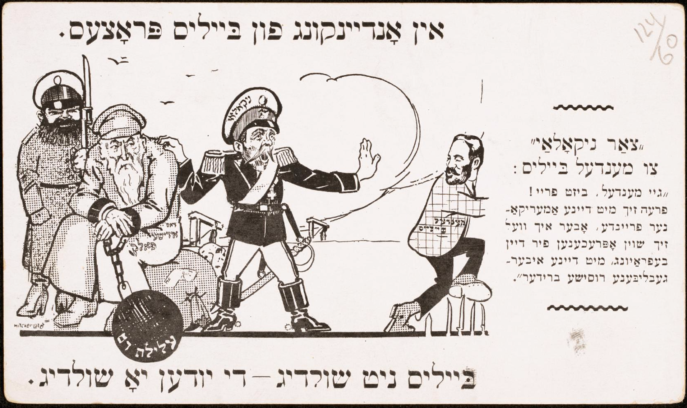
|
Conference
9:30am – 5:30pm Co-sponsored by American Jewish Historical Society, American Sephardi Federation, Center for Jewish History, Leo Baeck Institute, and Yeshiva University Museum Admission: $25 |
Watch the video:
Session 1 Session 2 Session 3 Session 4
The blood libel, the accusation that Jews committed ritual murder, has been the basis for some of the most hateful examples of organized antisemitism around the world since its fabrication in the Middle Ages up to the present day. This conference explores the impact of the blood libel over the centuries in a wide variety of geographic regions with a focus on how cultural memory was created, elaborated, and transmitted. Scholars presenting include Elissa Bemporad, Raphael Israeli, David Kertzer, Hillel Kieval, E.M. Rose, Magda Teter, and Barbara Weissberger. Talks examine well-known incidents and accusations, and address questions about motivations and the historical and cultural contexts of individual accusations. They address the sources for the accusations, their impact on affected Jewish communities both in the short and the long term, and they consider how these accusations have been treated in popular culture and learned commentary.
About the Participants
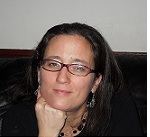
Elissa Bemporad is associate professor of history and the Jerry and William Ungar Chair in Eastern European Jewish history and the Holocaust at Hunter College (CUNY). Her research focuses on the social and cultural history of the Jews of Russia and the Soviet Union. Bemporad is the author of Becoming Soviet Jews: The Bolshevik Experiment in Minsk, 1917-1939 (Indiana University Press). Her new book, Legacy of Blood: Jews, Pogroms and Ritual Murder in the Lands of the Soviets, which will be published by Oxford University Press, is a social history of the two greatest legacies of Tsarist anti-Semitism, the pogroms and the blood libel accusations, from 1917 to the 1970s. Together with Joyce Warren, she is co-editing the forthcoming volume Women and Genocide (Indiana University Press) about the multifaceted roles played by women in different genocidal contexts during the twentieth century.

Raphael Israeli is a Professor of Islamic, Middle Eastern and Chinese history at Hebrew University in Jerusalem. Professor Israeli is the author of 15 books and some 80 scholarly articles in those domains. A member of the Steering Committee of the ACPR, his work in Hebrew, French, and English frequently appears in leading international publications including NATIV.
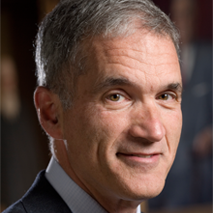
Winner of the 2015 Pulitzer Prize for Biography, David I. Kertzer's latest book, The Pope and Mussolini: The Secret History of Pius XI and the Rise of Fascism in Europe, was published by Random House in North America. Kertzer is an authority on Italian politics, society, and history; political symbolism; and anthropological demography. He is co-founder and served for many years as co-editor of the Journal of Modern Italian Studies. In April 2016, Steven Spielberg announced that he would be making a film based on Kertzer’s book in 2017, with a screenplay by Tony Kushner. In 2005 Kertzer was elected a member of the American Academy of Arts and Sciences. From 2006 to 2011, he was the Provost of Brown University where he is currently the Paul Dupee University Professor of Social Science and Professor of Anthropology and Italian Studies.
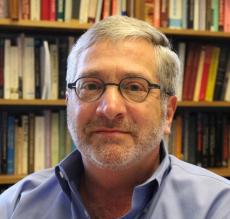
Hillel Kieval is the Gloria M. Goldstein Professor of Jewish History and Thought at Washington University in St. Louis where he teaches European Jewish history from medieval to modern times; directs graduate students in both Jewish and Central European history; and also offers courses in history and memory, ethnicity and nationalism, the Holocaust, and Jewish identities in the "age of nationalism." Kieval’s research focuses on transformations in Jewish culture and society in East Central Europe (Austria-Hungary, Germany, and Poland) from the Enlightenment to the Second World War, including the effects of modernization projects, ethnic and national struggles, social conflict, and antisemitism on Jewish life and Jewish-Gentile relations. Kieval’s work displays a particular interest in changing linguistic, cultural, and communal affiliations among Jews; in cross-cultural conflicts and misunderstandings; the function and phenomenology of the "ritual murder" trial in modern Europe; and, most recently, in the relationship between sacred text and ascribed identity in urban Central Europe at the turn of the twentieth century. Kieval's publications have dealt with such topics as national conflict and the formation of modern Jewish culture in the Bohemian lands; language, community, and Jewish experience in the Bohemian lands; trials against Jews for "ritual murder" in modern Europe; Jewish cultural mediation in multi-ethnic societies; the creation of the Golem legend in Prague; and Jewish resistance in Vichy France.

E.M. Rose is a historian and author of The Murder of William of Norwich: The Origins of the Blood Libel in Medieval Europe. Rose has taught at Johns Hopkins University, Villanova University, Princeton University, Rutgers University, and Baruch/CUNY. She is Visiting Scholar in the Program in Medieval Studies, Harvard University.

Magda Teter is Professor of History and the Shvidler Chair in Judaic Studies at Fordham University. She specializes in early modern religious and cultural history, with an emphasis on Jewish-Christian relations in Eastern Europe, the politics of religion, and transmission of culture among Jews and Christians across Europe in the early modern period. Teter is the author of Jews and Heretics in Catholic Poland, Sinners on Trial (Cambridge University Press), and a co-editor of and contributor to Social and Cultural Boundaries in Pre-modern Poland (Littman). Teter's work has been supported by the John Simon Guggenheim Memorial Foundation (2012), the Harry Frank Guggenheim Foundation (in 2007 and 2012), the Memorial Foundation for Jewish Culture, the YIVO Institute, and the Yad Ha-Nadiv Foundation (Israel), among others. In 2002, she was a Harry Starr Fellow in Jewish Studies at Harvard University, and in 2007-2008, an Emeline Bigelow Conland Fellow at the Radcliffe Institute for Advanced Studies, also at Harvard University.
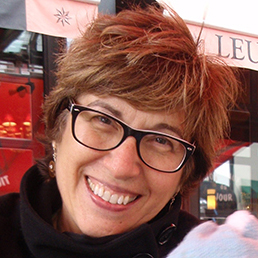
Barbara Weissberger has written extensively on gender, ethnicity, sexuality, and sovereignty in Medieval and Renaissance Spanish literature, and is considered a leading feminist scholar in the field of Hispanomedievalism. Her essay, “Gender and Genre: The Gendered Taxonomy of Spanish Romance,” received the John K. Walsh Prize, awarded for most outstanding essay by the MLA Division of Medieval Hispanic Languages, Literatures, and Cultures in 2001. In 2006, she received the International La Corónica Book Award for her book examining the role of competing gendered representations of the Catholic Queen in the construction of her public image, Isabel Rules: Constructing Queenship, Wielding Power (University of Minnesota Press, 2004). Together with María Judith Feliciano, Leyla Rouhi and Cynthia Robinson, she co-edited a 2006 special issue of the journal Medieval Encounters: Jewish, Christian, and Muslim Culture in Confluence and Dialogue, entitled Interrogating Iberian Frontiers. She is currently working on another book-project, entitled Anti-Semitism and Nationhood in Spain: 1490-1945.





